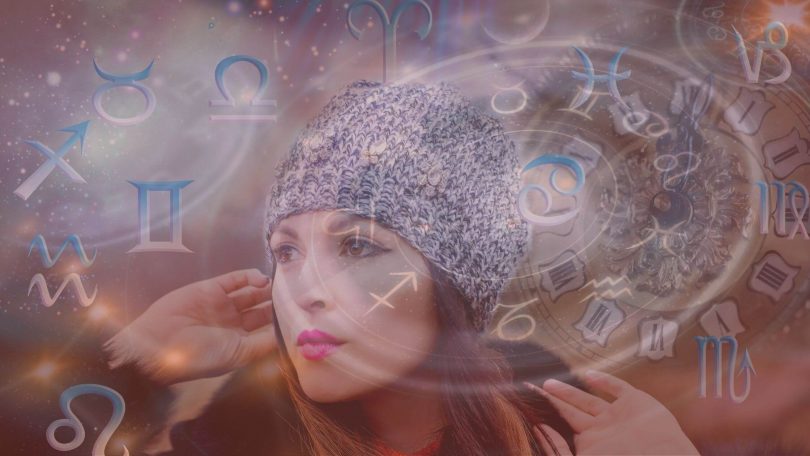There are numerous slightly different definitions of Astrology. However, they all agree that it is the study of the motion and location of celestial bodies (including the sun, moon, stars, and planets) and the influence they have on humanity, encompassing earthly events, people’s lives, and characters. Astrology incorporates astrological symbolism, natural astrology, and the astrological theory. Professional astrologers analyze celestial events and astronomical events to interpret their impact on individuals’ personal lives. Astrologers claim that the zodiac sign, moon sign, and rising sign play significant roles in shaping a person’s destiny. Despite its popularity among many individuals, astrology remains a subject of debate in the scientific community.
What Are Astrology?
Astrology has been a common practice for many centuries, with the observation of planets at its core. Astrology’s history dates right back to the beginning of humankind. Several prominent, ancient cultures and societies such as the Egyptian, Chinese and Indian civilizations relied heavily upon this method to make state decisions, plant crops, etc. Before the advent of the Islamic religion, Arabians also applied astrology. Initially, this was on a basic level, as a way to navigate using the stars to guide them. Later, however, Islamic scientists made extensive contributions to astrology, updating methods of measuring and calculating planetary movement. Baghdad and Damascus accommodated major Astrology and Astronomy study centers between the 8th and 10th centuries.
The first civilization that was known to use astrology was the Babylonians in Mesopotamia in 3000 BC. They recognized and named the star constellations and were the first to discern five of the initial seven visible planets (Mercury, Venus, Mars, Jupiter, and Saturn). The current names for the days of the week were derived from these planets (Tuesday – Saturday), and then the Sun and Moon (Sunday and Monday) were added.
Zodiac Signs and Their Influence
Zodiac signs are one of the central concepts in astrology. The zodiac is divided into 12 equal parts, each representing a different constellation, and these constellations are said to influence our personalities and characteristics. Each sign has its unique set of traits, strengths, and weaknesses that are believed to shape who we are as individuals.
The twelve zodiac signs are Aries, Taurus, Gemini, Cancer, Leo, Virgo, Libra, Scorpio, Sagittarius, Capricorn, Aquarius and Pisces. Each sign is associated with one of the four elements: fire (Aries, Leo and Sagittarius), earth (Taurus, Virgo and Capricorn), air (Gemini, Libra and Aquarius) and water (Cancer, Scorpio and Pisces). It is believed that these elements also play a significant role in shaping our personalities.
Zodiac signs are often used to gain insight into our own strengths and weaknesses, as well as understanding the people around us. They can also be used to predict future events or make decisions about important life choices. While some people may believe strongly in the influence of zodiac signs, others may see it as nothing more than a fun and interesting aspect of life.
The Connection Between Astrology and Humanity
Astrology has always been closely tied to humanity. As humans, we have always been fascinated by the stars and planets above us. We look for patterns and meanings in their movement and alignment, hoping to gain some understanding of ourselves and our place in the universe.
Astrology can also offer comfort and guidance during difficult times, as well as provide a sense of belonging and connection to something greater than ourselves. It has been used throughout history to help people make sense of the world around them and navigate through life’s challenges.
Additionally, astrology highlights the interconnectedness of humanity and the universe. We are all affected by the same cosmic forces, and astrology can help us understand how these forces influence not only ourselves but also those around us.
In conclusion, astrology is a fascinating and complex subject that has been intertwined with humanity for centuries. Whether you believe in its influence or see it as simply a form of entertainment, there is no denying the impact it has had on our history and culture. It continues to be a source of curiosity and wonder for many, offering insights into ourselves and our place in the universe. So next time you read your horoscope or look up at the stars, remember the deep connection between astrology and humanity.
Zodiac Sign Origin
Astrology was also significant to ancient Egyptians, and they played a large part in its advancement and growth. They used to stare at the sky, waiting for guidance, using clouds as a way to focus their sight. It is theorized that Egyptian priests shared their astrological knowledge with the Babylonians. It is also thought that some of the astrological signs of the zodiac originated in Egypt, and they used their Gods and Goddesses to replace the Greek zodiac denominations. For example, Khum, the Egyptian water God, replaced Aquarius.
Claudius Ptolemy, a Greek astronomer, wrote the first scholarly book on astrology in approximately 141 CE. Within this book, he defined the 12 sun signs of the Zodiac that we use today. He did extensive research in astronomy, astrology, geography, and harmonics. Ptolemy tried to develop a mathematical framework that could be used to anticipate and forecast planetary positions, with the earth at the center of the cosmos. At the time of his book, astrology was considered an element of astronomy. However, subsequently, astronomy became regarded as a science, and astrology a pseudoscience, meaning that there is no empirical evidence that proves astrology can make accurate predictions during controlled, scientific studies.
Chinese astrology’s birth originally dates back to the Zhou dynasty (1046-256 BC), but it was formalized and flourished during the Han dynasty over 2000 years ago. It is based on the theory of the five elements: metal, wood, water, fire, and earth. China was isolated from the western world for a long time, which is why Chinese astrology is so different. Even Chinese zodiac signs differ from other types as they are animals that are representative of the birth year in a 60-year cycle.
Western Astrology vs. Eastern Astrology
There are some significant differences between Western astrology and Chinese astrology. In Western astrology, the zodiac is divided into 12 equal parts, while in Chinese astrology it is divided into 12 years with each year associated with a different animal sign. Additionally, Chinese astrology also takes into account the elements of metal, wood, water, fire, and earth, which correspond to each animal sign.
Furthermore, Western astrology is more focused on the individual and their personal traits and characteristics, while Chinese astrology focuses on relationships and compatibility between individuals based on their respective signs. Therefore, in Western astrology, a person’s zodiac sign is determined by their date of birth, whereas in Chinese astrology it is determined by the year they were born. This difference often leads to individuals having different zodiac signs in each system.
Despite these differences, both Western and Eastern astrology share the belief that celestial bodies and their positions can offer insights into human behavior and personality traits. They also use astrological charts and horoscopes as tools for guidance and self-discovery
Celestial Bodies and the Zodiac
The zodiac is a celestial coordinate system that takes the ecliptic as the origin of latitude and the position of the sun at the vernal equinox as the origin of longitude. It is deeply intertwined with the study of celestial bodies, and comprises of twelve astrological signs, each named for the constellation which originally fell within its division. These signs are Aries, Taurus, Gemini, Cancer, Leo, Virgo, Libra, Scorpio, Sagittarius, Capricorn, Aquarius, and Pisces.
Celestial bodies like the sun, moon, and planets continually move through these zodiac signs, their transitions and alignments forming the basis of astrological predictions. Each celestial body is believed to govern certain aspects of our personality and life. For example, the sun is believed to rule our basic personality, identity, and ego, while the moon rules our emotional core, instincts, and subconscious.
Astrologers study the movement of these celestial bodies to draw insights about an individual’s characteristics, behavior, and their future. By mapping their positions at the precise moment of someone’s birth, a natal chart or horoscope is formed. This natal chart, with its unique combination of zodiac sign s and celestial bodies, serves as an astrological blueprint of a person’s life.
Vedic Astrology
Vedic astrology, also known as ancient Indian astrology, has a history dating back to 5000 BC. Its origins are rooted in the Vedas, the world’s oldest scriptures. This fascinating discipline is one of the six branches of Vedanga. It stands apart from Western and Chinese astrology due to its emphasis on time-keeping.
Astrology plays a significant role in the lives of people born under its influence. Astrologers believe that the exact moment of birth is determined by the supreme power, influenced by the positions of heavenly bodies such as the moon and the sun. This precise time is believed to be influenced by the individual’s past lives, shaping their future based on the principles of karma.
The accuracy of Vedic astrology’s predictions is widely acknowledged, as they are derived from the interpretation of constellations and the impact of planetary movements. This ancient science combines aspects of astronomy and astrology to provide insights into the lives of individuals. The astrological interpretations take into account the positions and interactions of stars, providing a unique perspective on one’s life journey.
In the modern world, Vedic astrology continues to captivate and intrigue people. Its rich history and profound interpretations make it a cherished part of Indian culture. Whether seeking guidance or exploring the mysteries of the universe, Vedic astrology offers a unique and valuable perspective on life’s journey.
Modern India
In modern India, astrology holds a significant position within Indian culture. It is extensively used to predict and enhance one’s life. People rely on astrology to make crucial decisions regarding marriage, business ventures, relocation, and even naming their newborns. The practice of Vastu Shashtra, the science of architecture, is gaining popularity among Hindus who believe that it brings peace, prosperity, and good luck to their homes when followed accurately.
Astrology continues to hold its ground in political, religious, and legal contexts in India, alongside more traditional sciences. Many professional astrologers claim that astrology is a scientific method of predicting the future. It involves studying celestial events, zodiac sign s, the positions of other planets, and the interpretation of the stars to explain a person’s fate.
Astrology intertwines with astronomy, which focuses on the scientific study of celestial bodies like the moon, Earth, and the sun. This knowledge helps astrologers understand the nature of astrological events and their impact on the world. The practice of astrology is based on the belief that the alignment of the stars and planets at the time of a person’s birth influences their personality and life path.
Astrology, as a science, provides a framework to interpret and understand the influence of celestial events on human lives. It helps people navigate their journey by offering insights into their individual traits, strengths, and weaknesses. Despite its critics, astrology continues to be a widely accepted and practiced discipline in India, providing guidance and knowledge to those who seek it.
Horoscope
Horoscopes are a method of astrological prediction based on an individual’s birth date. The first horoscope appeared in a newspaper in 1930, and reading daily horoscopes has become a popular trend in the Western world. In the past, Westerners were known for their analytical nature and reliance on scientific evidence. However, when it comes to horoscopes, people have started embracing the possibility of cosmic alignment and influence without extensive scientific investigation. Over the past few years, Western scholars have increasingly delved into the study of astrology. In light of this, it is important for Indian astrologers, who consider astrology a science, to come forward and share their evidence regarding the power of astrology.
Astrology encompasses key concepts such as zodiac sign s, celestial events, and the relative positions of stars and planets. By analyzing a person’s birth chart, astrologers can provide insights into their particular sign and the influence of stars and planets on their fate. Astrology is deeply ingrained in different cultures and has a significant impact on daily life, free will, and the human mind.
Professional astrologers combine scientific research and astronomical knowledge to explain the nature of astrological events and their interpretation. The study of constellations, principles, and stars within the solar system forms the basis of astrological practice. The birth chart, interpreted by astrologers, offers valuable insights into various aspects of a person’s life.
Astrology is a fascinating field that continues to evolve with new scientific discoveries and research. By exploring the connections between celestial events and human experiences, astrology provides a unique perspective on the world. It is a complex and intricate system that requires deep knowledge and understanding. As the field of astrology expands, it offers valuable insights into the mysteries of the universe and the interplay between the stars, planets, and human existence.








